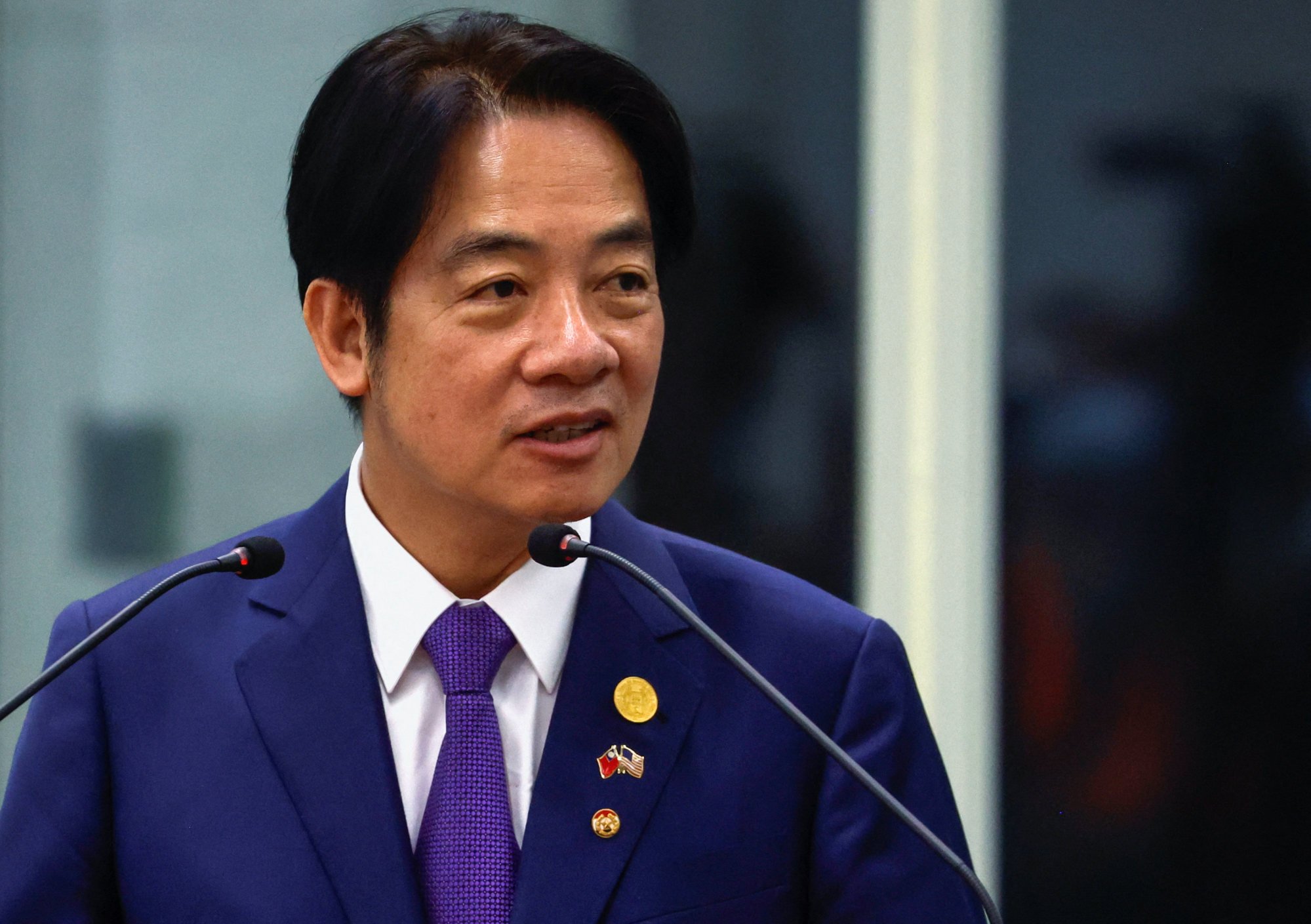Support from Taiwanese voters for the ruling independence-leaning Democratic Progressive Party presidential front runner William Lai Ching-te has fallen below 30 per cent for the first time in seven months.
The survey results were the latest worrisome sign for the DPP which is seeking to break a long-time political trend on the island that has seen the ruling party hand over power to contenders after holding power for two four-year presidential terms, observers said.
US Taiwan envoy makes third trip to island ahead of presidential elections
US Taiwan envoy makes third trip to island ahead of presidential elections
The Taipei-based independent polling agency, which is known for its impartial stance, found disapproval of Tsai rose to 53 per cent from 48.2 per cent in September – the highest level since April 2019.
“With the disapproval 16.5 percentage points more than the approval, the polling signals an important message that President Tsai Ing-wen is embroiled in a new administrative predicament,” agency head Michael You Ying-lung said, adding that such results usually indicate strong public dissatisfaction about governance.
You said that because of her role as president and her rank within the DPP, Tsai’s plunging popularity and support could cause collateral damage for the ruling party and impact its chances in January’s elections.
“The drop of her approval rating might not fare well for the DPP. This is something worth noting,” You said.
He said a closer look at the approval rating of Premier Chen Chien-jen, who was appointed by Tsai eight months ago to lead the cabinet, could offer clues as to why the public has been dissatisfied with Tsai’s performance.
The foundation’s survey found that only 39.2 per cent of the respondents were satisfied with the overall administrative performance of the cabinet over the past eight months.
On the other hand, 43.8 per cent were dissatisfied with the cabinet’s performance, meaning more people were upset by the administration of the Tsai government.
“This of course is another piece of bad news for the ruling party in terms of the 2024 presidential and legislative elections,” You said.
The survey also asked voters whether they support the continued governance of the DPP in 2024. A total of 53.5 per cent of respondents said they were opposed to the DPP staying in control of the government, compared to 34.7 per cent who wanted the party to stay put.
“This means the eight-year spell has shown its power as Taiwan society is filled with expectations of a fourth transfer of government,” You said, referring to the previous changes of ruling parties since 2000.

Wang Kung-yu, head of the Taiwan International Strategic Study Society, a Taipei think tank, said people were unhappy with the unchecked power of the majority DPP government.
“With the DPP having the majority in the legislature, there is little room for the opposition to exercise their checks and balances, meaning the DPP government can choose to pass the bills and decrees it desires. This is what voters dislike most,” he said.
Opposition considers joint ticket for better chance of winning Taiwan election
Opposition considers joint ticket for better chance of winning Taiwan election
That also explained why 59 per cent of the respondents did not support having the DPP continue to dominate both the government and the legislature in 2024, even if the DPP wins the presidential election, You said of the latest finding in the survey.



